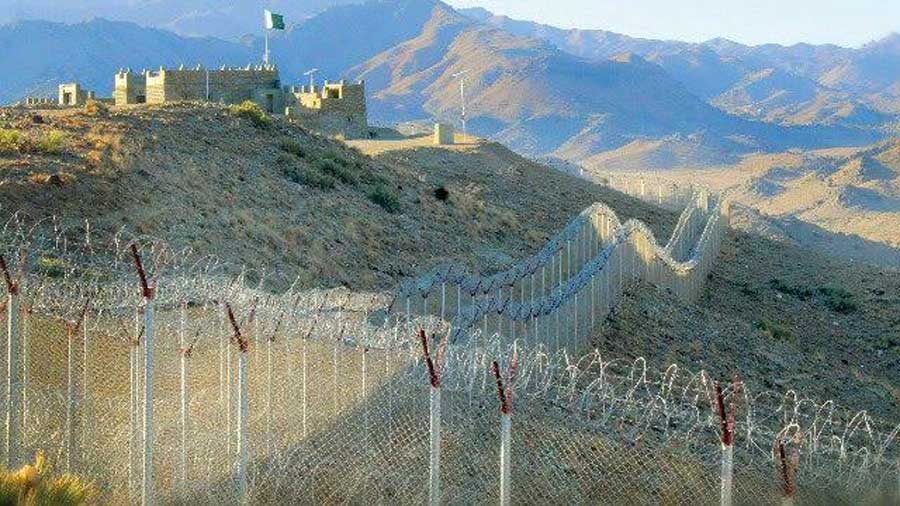
Afghanistan and Pakistan, two nations bound by shared historical, cultural, and geographical ties, have long recognized the importance of fostering peaceful and cooperative relations. Despite a complex history marked by periods of collaboration and tension, Pakistan has consistently reiterated its commitment to cultivating friendly relations with Afghanistan. This enduring aspiration is rooted in the understanding that regional stability necessitates addressing shared challenges through mutual cooperation. However, recent developments have brought to light critical issues that continue to test the resilience of this bilateral relationship. Chief among these is the persistent threat posed by transnational terrorism, particularly the activities of the Tehrik-i-Taliban Pakistan (TTP) Khawarjis. Pakistan’s recent military operations against this faction underscore its urgent need to safeguard national security while maintaining its commitment to regional peace.
Pakistan’s Commitment to Afghanistan’s Stability
Pakistan’s foreign policy towards Afghanistan has consistently emphasized stability and prosperity for its neighbor. This approach is evidenced by numerous diplomatic initiatives, humanitarian assistance programs, and regional dialogues aimed at supporting Afghanistan’s socio-economic development. Pakistan has also extended economic cooperation and infrastructural support, recognizing that a stable Afghanistan is vital for the broader region. Despite these efforts, Pakistan’s legitimate security concerns persist. The porous border shared by the two nations has become a focal point for terrorist activities, with militant groups exploiting the region’s geopolitical complexities. Among these, the TTP has emerged as a significant threat, targeting both Pakistani and Afghan interests. Pakistan has repeatedly urged the Interim Afghan Government (IAG) to take decisive action against the TTP, highlighting the group’s transnational nature and its capacity to destabilize the region.
The Threat of TTP Khawarjis
The TTP Khawarjis represent a faction that has deviated from mainstream ideological paths, often employing violent means to achieve their objectives. Their activities, including suicide bombings, cross-border attacks, and targeted killings, have inflicted severe harm on Pakistani civilians and security forces. The term “Khawarji” aptly captures their deviation from established norms and their disregard for human life. The recent escalation in TTP activities, marked by bold attacks on Pakistani security personnel, underscores the urgency of addressing this threat. A particularly egregious incident involved the targeted killing of 16 Pakistani soldiers, an act celebrated by the TTP as a “victory.” This audacious behavior reflects the group’s growing confidence and the inadequacy of existing measures to curb its influence.
Pakistan’s Military Response: Context and Objectives
In response to the escalating threat, Pakistan’s military conducted targeted airstrikes along its border areas. These operations were explicitly aimed at dismantling TTP strongholds and eliminating key operatives. Importantly, these actions were not directed at Afghan civilians or government forces but were a measured response to an existential security threat. The timing of these airstrikes, coinciding with the TTP’s celebration of the martyrdom of Pakistani soldiers, further underscores their significance. For Pakistan, this was not merely a tactical response but a symbolic assertion of its sovereignty and commitment to protecting its citizens. The government’s emphasis on the targeted nature of these operations highlights its intent to avoid collateral damage and maintain goodwill with Afghanistan.
The Call for Reciprocal Action
While Pakistan’s military actions were necessitated by immediate security concerns, the broader issue remains unresolved. Pakistan has consistently called on the Afghan government to dismantle terrorist networks operating within its borders. The lack of effective measures by the IAG has exacerbated tensions, undermining efforts to foster mutual trust. The path to sustainable peace lies in coordinated efforts to address the root causes of terrorism. Pakistan’s actions, though unilateral in nature, are a call to action for Afghanistan to fulfill its responsibilities as a regional partner. The dismantling of terrorist safe havens is essential not only for Pakistan’s security but also for the long-term stability of Afghanistan.
Conclusion
Pakistan’s recent airstrikes against the TTP Khawarjis must be understood within the context of its broader commitment to regional stability. These actions, driven by legitimate security concerns, reflect the complexities of navigating transnational terrorism in a volatile geopolitical landscape. For both nations, the road to peace requires mutual understanding, cooperation, and decisive action against the forces of terror. Only through such efforts can Afghanistan and Pakistan hope to build a future defined by stability and shared prosperity.
